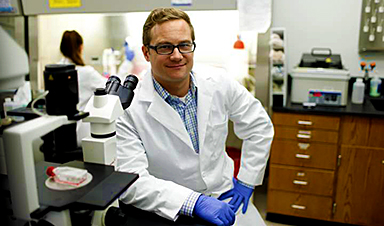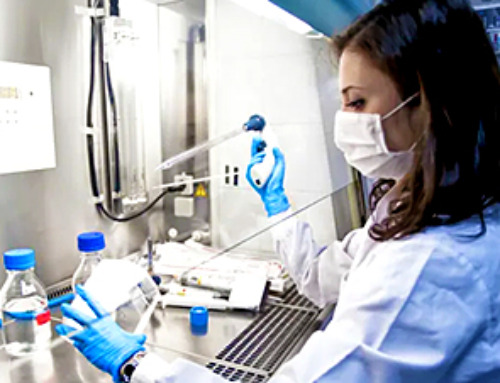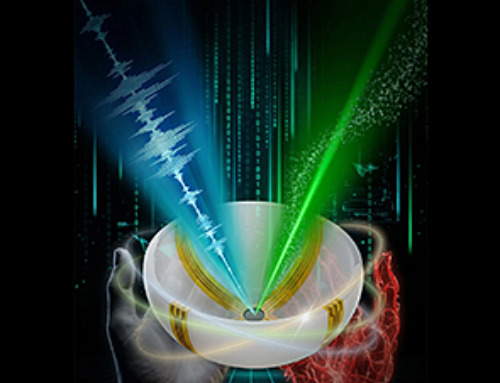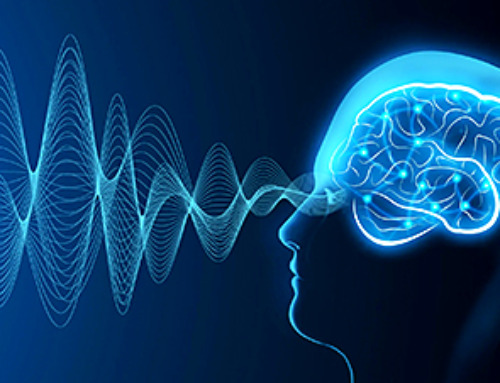Vanderbilt researchers have developed a set of nanoparticles that stimulate the immune system in mice to fight cancer and may eventually do the same in humans.
The research, led by John T. Wilson, associate professor of chemical and biomolecular engineering and biomedical engineering, was recently published in ACS Nano.
Working with collaborators at Yale University, Wilson and his team designed lipid nanoparticles—the tiny balls of fat behind the success of mRNA vaccines—to deliver a nucleic acid molecule that triggers an anti-tumor immune response.
The nucleic acid stimulates the retinoic acid inducible gene I, or RIG-I, pathway that is normally used by the body to recognize foreign viruses, such as influenza, to help the immune system mount a defense, according to the researchers.
By packaging this molecule into lipid nanoparticles to improve its delivery to the cytosol of cells, the researchers were able to strongly activate the RIG-I pathway, triggering the immune system to focus its attention on killing cancer cells in mouse models of breast cancer and melanoma.
“RIG-I is commonly activated to help the body combat viral infections and there is compelling evidence that this same pathway can be harnessed to stimulate the immune system to fight cancer,” said Wilson, a Chancellor Faculty Fellow.
While much work remains before such technology can be advanced to treat human cancers, the authors noted that lipid nanoparticles have already been administered to millions of people who have received the COVID-19 mRNA vaccine and that other drugs that activate RIG-I have advanced into clinical trials, creating a potential path to clinical testing.
“We observed very nice responses even without doing a lot of optimization to the system, and so this sets the stage for future work to develop technologies that can do this even more effectively and also safely,” Wilson said.
More information: Lihong Wang-Bishop et al, Nanoparticle Retinoic Acid-Inducible Gene I Agonist for Cancer Immunotherapy, ACS Nano (2024). DOI: 10.1021/acsnano.3c06225
Journal information: ACS Nano
Provided by Vanderbilt University
News
These two viruses may become the next public health threats, scientists say
Two emerging pathogens with animal origins—influenza D virus and canine coronavirus—have so far been quietly flying under the radar, but researchers warn conditions are ripe for the viruses to spread more widely among humans. [...]
COVID-19 viral fragments shown to target and kill specific immune cells
COVID-19 viral fragments shown to target and kill specific immune cells in UCLA-led study Clues about extreme cases and omicron’s effects come from a cross-disciplinary international research team New research shows that after the [...]
Smaller Than a Grain of Salt: Engineers Create the World’s Tiniest Wireless Brain Implant
A salt-grain-sized neural implant can record and transmit brain activity wirelessly for extended periods. Researchers at Cornell University, working with collaborators, have created an extremely small neural implant that can sit on a grain of [...]
Scientists Develop a New Way To See Inside the Human Body Using 3D Color Imaging
A newly developed imaging method blends ultrasound and photoacoustics to capture both tissue structure and blood-vessel function in 3D. By blending two powerful imaging methods, researchers from Caltech and USC have developed a new way to [...]
Brain waves could help paralyzed patients move again
People with spinal cord injuries often lose the ability to move their arms or legs. In many cases, the nerves in the limbs remain healthy, and the brain continues to function normally. The loss of [...]
Scientists Discover a New “Cleanup Hub” Inside the Human Brain
A newly identified lymphatic drainage pathway along the middle meningeal artery reveals how the human brain clears waste. How does the brain clear away waste? This task is handled by the brain’s lymphatic drainage [...]
New Drug Slashes Dangerous Blood Fats by Nearly 40% in First Human Trial
Scientists have found a way to fine-tune a central fat-control pathway in the liver, reducing harmful blood triglycerides while preserving beneficial cholesterol functions. When we eat, the body turns surplus calories into molecules called [...]
A Simple Brain Scan May Help Restore Movement After Paralysis
A brain cap and smart algorithms may one day help paralyzed patients turn thought into movement—no surgery required. People with spinal cord injuries often experience partial or complete loss of movement in their arms [...]
Plant Discovery Could Transform How Medicines Are Made
Scientists have uncovered an unexpected way plants make powerful chemicals, revealing hidden biological connections that could transform how medicines are discovered and produced. Plants produce protective chemicals called alkaloids as part of their natural [...]
Scientists Develop IV Therapy That Repairs the Brain After Stroke
New nanomaterial passes the blood-brain barrier to reduce damaging inflammation after the most common form of stroke. When someone experiences a stroke, doctors must quickly restore blood flow to the brain to prevent death. [...]
Analyzing Darwin’s specimens without opening 200-year-old jars
Scientists have successfully analyzed Charles Darwin's original specimens from his HMS Beagle voyage (1831 to 1836) to the Galapagos Islands. Remarkably, the specimens have been analyzed without opening their 200-year-old preservation jars. Examining 46 [...]
Scientists discover natural ‘brake’ that could stop harmful inflammation
Researchers at University College London (UCL) have uncovered a key mechanism that helps the body switch off inflammation—a breakthrough that could lead to new treatments for chronic diseases affecting millions worldwide. Inflammation is the [...]
A Forgotten Molecule Could Revive Failing Antifungal Drugs and Save Millions of Lives
Scientists have uncovered a way to make existing antifungal drugs work again against deadly, drug-resistant fungi. Fungal infections claim millions of lives worldwide each year, and current medical treatments are failing to keep pace. [...]
Scientists Trap Thyme’s Healing Power in Tiny Capsules
A new micro-encapsulation breakthrough could turn thyme’s powerful health benefits into safer, smarter nanodoses. Thyme extract is often praised for its wide range of health benefits, giving it a reputation as a natural medicinal [...]
Scientists Develop Spray-On Powder That Instantly Seals Life-Threatening Wounds
KAIST scientists have created a fast-acting, stable powder hemostat that stops bleeding in one second and could significantly improve survival in combat and emergency medicine. Severe blood loss remains the primary cause of death from [...]
Oceans Are Struggling To Absorb Carbon As Microplastics Flood Their Waters
New research points to an unexpected way plastic pollution may be influencing Earth’s climate system. A recent study suggests that microscopic plastic pollution is reducing the ocean’s capacity to take in carbon dioxide, a [...]





















